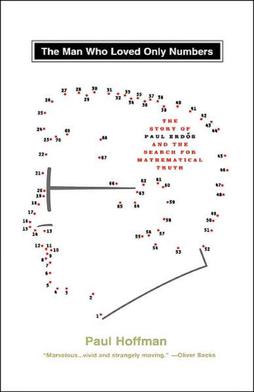Contrary to popular notions that people who are into genealogy are snobs just trying to raise their status by proving royal or noble blood flows in their veins, there is another explanation for this fever. Basically, ancestors who were wealthy, noble, or notable in history (not always the same!) have more documentation in general. So if you link to such a person you often can go further back in your research. Populations were so much smaller then, there is a greater chance you can link to many others by correctly linking to one. Since nobles tended to marry nobles, linking to one correctly can open your research.
Searching in HUNGARICANA for surnames, I printed out the five pages of information that the translation option offered from Hungarian to English. Reading it, my head started spinning. It seemed so awkwardly worded and repetitive.
HERE IS WHAT YOU NEED TO KNOW, as edited and commented upon and enhanced with information by me!
C 2018 Magyar-American BlogSpot

..................................................................................................................................................
The LIBRI REGII (Latin for Books Royal, Royal Books, or the King's Books) that are currently in the custody of the Hungarian National Archives, were copied originally by The Royal Chancellery. Recorded were the major documents issued by the King /in the name of the King. They record the "grace" of the King, the favors or grants in which he gave permanent rights and privileges to a person or family. (They may also record the "grace" of the Queen, as Ruler. And permanent was the intention though history proves otherwise.) The subject of each written "diploma" (think award certification) or official grant can be property, real estate, the titles - such as noble title and rank, the right to hold fairs (usually for the purpose of sales/marketing rather than entertainment), the right for a person to tax a village or town or expect duty to be paid to them by serfs / tenants / merchants, as well as privileges involving the trade guilds. In some cases the document is a deprivation or withdraw, a reduction or loss of these things.
Included in the Books are a large number of documents for business such as licenses granted, industrial or commercial patents, Royal Declarations that required legal/civil actions such as real estate sales and purchases, gifts, endorsements, the adoption of children, as well as testimonials and decisions on parenting. (This may seem to be too small and personal a subject for a King or Queen to be involved with. Consider that diseases were equal opportunity and didn't just kill off peasants; there were orphans who were nobles and who raised them, just as who married them, could be considered the business of the King since it also influenced inheritance rights.)
THE PROBLEMS WITH THE COLLECTION ARE AS FOLLOWS:
-The chronological order isn't strict.
-Pre 1526, the names may be mentioned but not much else.
-Not until 1718 historically were noble titles and inferred wealth recorded. The collection includes information before 1718 but that information is considered less reliable generally.
- Before 1718 there were documents that went unrecorded in these volumes in the first place.
-It is not well known but in the 18th century it was expected that a person would pay for this information to be recorded in the books. (I am not sure if the amount was considered to be expensive or not.)
Which means that just because what you're looking for isn't in these books does not mean it doesn't exist elsewhere and you should considered county or city archives, for instance.
There are 67 (Sixty-Seven) volumes of ROYAL BOOKS that go from the year 1527 to the year 1848. Three and a half centuries is a long time. (1848 is the year nobility was abolished but you can be sure that you will find notations of some person's noble status past that on some census records and in some church records, for sure.) These 67 volumes were originally kept by the Hungarian Court in VIENNA. Royal Books for the years 1670-1867 originating in the TRANSYLVANIAN Chancellery are included in the collection.
At the beginning of the 18th century, in order to make the books more usable, an ALPHABETICAL NAME INDEX was added as an edit by the Chancellery. Later Coats of Arms / Shields were also added for certain entries. (These are often in color and are of high quality. One wonders if nobles paid extra!)
In 1872 the archived volumes for the VIENNA Chancellery were moved to BUDAPEST, HUNGARY. However in Vienna the King's ministry kept some books and thus began a 22 year negotiation before they also became part of the HUNGARIAN NATIONAL ARCHIVES! Finally, in 1895, a LIST OF NAMES as an INDEX, appeared in the Royal Books that included nobles and other titled persons. (Hoping to add to the usability of these documents, the archives decided to make other thematic index/ list books as well.)
Of special interest when you search HUNGARICANA is The ILLESY COLLECTION. It is named after Janos Illesy who worked in the Archives of the Hungarian Chancellery. In it there are 70 (Seventy) different documents that are focused on nobility, privileged, and rank of families and how those were achieved. But that's not all. In particular, Illesy made about 10,000 (ten thousand) cards (by surname) based on the 18th -19th century noble census and these cards can also work as an index. The cards by surname include much useful information for genealogists and historians.
A PROBLEM may be that the SURNAME has a good number of spelling variations. NOTE THAT THE CARD SURNAMES are not in alphabetical order. THEY ARE IN PHONETIC HUNGARIAN, not phonetic English, German, or any other language.
If the name is common, and so many Hungarian surnames are, you will have to look for the county as well as the surname.
C 2018 Magyar-American BlogSpot All Rights reserved including Internet and International Rights.
HERE IS THAT LINK https://hungaricana.hu/hu/adatbazisok/kiralyi-konyvek/


